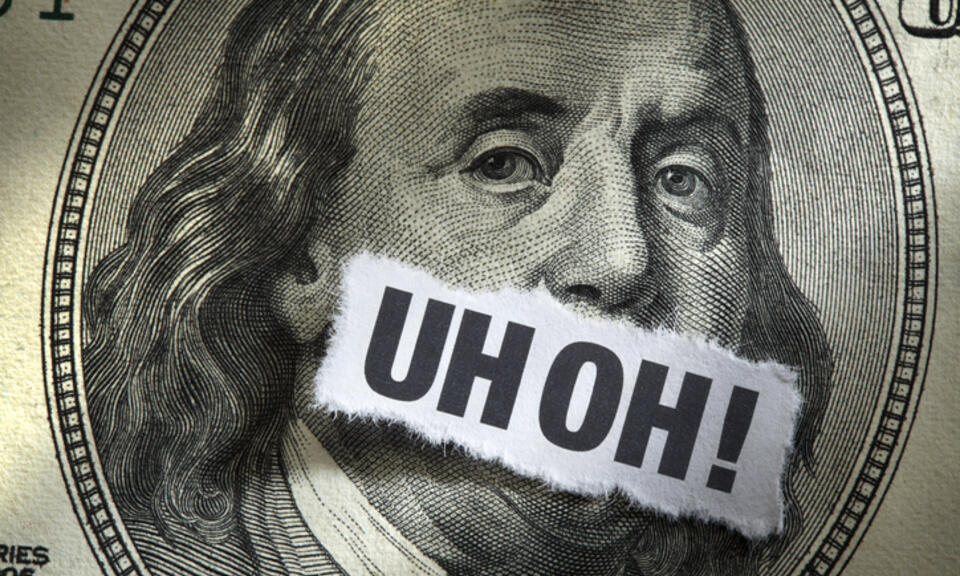Written by
Published
Category
Key topics
Top executives of US banks that experienced huge losses in the 2008 crisis sold their own shares well before the crisis hit
Excessive risk-taking by banks is often associated with economic recession. A key question for policy and for the academic literature is why banks take excessive risk. There are two (non-mutually-exclusive) views.
First, the moral hazard view implies that conflicts of interest (agency problems) between bank shareholders/managers and bank debt-holders/taxpayers make it rational for banks to take on excessive risk (for example, greater leverage), because of explicit and implicit bank guarantees such as deposit insurance, central bank liquidity and government bailouts.
Consistent with this view, bankers understand the risks involved but find it optimal to take excessive risks. Moreover, bankers’ incentives are affected by bonuses, which typically are tied to the short term rather than long-term profitability of their bets. Therefore, bank insiders such as the chief executive and chief financial officers, or the chairman of the board contribute to the standard agency problem when acting on behalf of shareholders, but also when acting in their own interests and, in this case, against the interests of shareholders, bondholders, and taxpayers. Agency problems are at the heart of modern corporate finance theories but for banks, agency problems may be more important than for non-financial firms since banks are more leveraged and have stronger explicit and implicit guarantees.
supervisors and policymakers should use the sales of top-tier management staff in banks as an early warning signal of potential excessive risk-taking
Second, the behavioural view states that banks take excessive risks because they neglect the possibility of extreme events (unlikely tail risks) or have over-optimistic beliefs. In the extreme end of this view, banks were not aware of their excessive risk-taking prior to the crisis.
One empirical way to analyse these issues is to document what insiders were doing before the crisis. In a recent paper, we analyse the trading behaviour of top executives in US banks. We use executives’ trading in their own portfolios to proxy their understanding of excessive risk and test whether US banks’ performance in the 2007–08 crisis is related to bank insiders’ sale of their own bank shares in the period prior to the peak and reversal in house prices in the second quarter of 2006.
We find robust evidence that top-five executives’ ex-ante sales of their own bank shares predict worse bank stock returns during the crisis. Moreover, we find that the top-five executives’ significant impact is stronger for banks with higher ex-ante exposure to the real estate market (that is, banks more exposed to the real estate bubble).
bankers’ incentives are affected by bonuses, which typically are tied to the short term rather than long-term profitability of their bets
An increase of one standard deviation of top–five executive sales leads to a 13.33 percentage point drop in stock returns during the crisis period, which is approximately 32 per cent of the 40 per cent negative returns of banks with above average exposure to real estate.
All in all, given the informational content of bank insider trading before the overall real estate problems, these results suggest that insiders understood the large risk-taking in their banks, they were not simply over-optimistic, and hence the insiders in the riskier banks sold more before the crisis.
Finally, we investigate the link between bank insiders’ sales before April 2006 and bank-level risk-taking (leverage and real estate exposure) and pay-out policy (dividends) immediately after the real estate price peak. We find no reaction in any of these variables. This result suggests that the executives of riskier banks did not reduce the bank-level overall risk (by reducing leverage or real estate exposure).
These results have implications not only for corporate finance or banking theory based on agency problems, but also for the understanding of financial crises and public policy – especially on the recent prudential policy measures on both sides of the Atlantic. The evidence is consistent with agency problems in the banking industry being important in driving risk-taking and, therefore, the recent policy initiatives on higher bank capital (including Basel III) or macroprudential policies around the world may be useful for limiting excessive bank risk-taking. If high risk-taking in banks were exclusively due to behavioural reasons, then some of the new prudential policies providing better incentives for bankers would not matter at all.
insiders understood the large risk-taking in their banks
From a supervisory perspective, our results suggest that supervisors and policymakers should use the sales of top-tier management staff in banks as an early warning signal of potential excessive risk-taking in banks. But once bankers are aware that this measure is being used, it may lose its predictive power.
Moreover, our results may also yield policy implications for insider trading regulation in banking institutions, particularly the FSB-developed Principles of Sound Compensation Practices and Implementation, as well as in relation to several proposals on board oversight, variable versus fixed salary schemes, and stock options. The ability to trade by insiders (selling shares of their own bank when they anticipate that their excessive risk-taking may lead to problems) may exacerbate conflicts of interest.
Banning trading by bank insiders may endogenously result in lower excessive risk-taking by banks and operate as a partial substitute for bank capital regulation or macroprudential policies. But banning trading by bank insiders on these grounds would not be fully justified as there are many other costs and benefits involved that should be considered.
This article draws on findings from "Anticipating the Financial Crisis: Evidence from Insider Trading in Banks" by Ozlem Akin (Ozyegin University), José M. Marín (Universidad Carlos III Madrid) and José-Luis Peydró (Imperial Business School), published in Economic Policy.
This article originally appeared on LSE Business Review and appears here with their permission.




